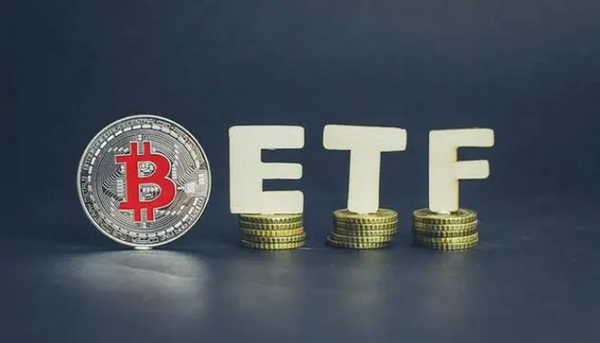-
 Bitcoin
Bitcoin $93,602.3659
6.91% -
 Ethereum
Ethereum $1,758.5924
11.56% -
 Tether USDt
Tether USDt $0.9999
0.00% -
 XRP
XRP $2.2214
6.72% -
 BNB
BNB $617.8314
3.52% -
 Solana
Solana $148.9760
9.14% -
 USDC
USDC $0.9996
0.00% -
 Dogecoin
Dogecoin $0.1799
13.14% -
 Cardano
Cardano $0.6820
9.59% -
 TRON
TRON $0.2479
0.49% -
 Chainlink
Chainlink $14.1250
8.00% -
 Avalanche
Avalanche $22.0564
11.95% -
 Sui
Sui $2.7332
24.78% -
 UNUS SED LEO
UNUS SED LEO $9.0430
-0.29% -
 Stellar
Stellar $0.2656
6.88% -
 Shiba Inu
Shiba Inu $0.0...01365
10.77% -
 Toncoin
Toncoin $3.0922
7.29% -
 Hedera
Hedera $0.1818
7.50% -
 Bitcoin Cash
Bitcoin Cash $360.5491
4.99% -
 Hyperliquid
Hyperliquid $19.1223
5.89% -
 Polkadot
Polkadot $4.0203
6.72% -
 Litecoin
Litecoin $83.5258
7.11% -
 Bitget Token
Bitget Token $4.5932
3.42% -
 Dai
Dai $1.0001
0.03% -
 Ethena USDe
Ethena USDe $0.9996
0.03% -
 Pi
Pi $0.6455
2.29% -
 Monero
Monero $225.6601
4.56% -
 Pepe
Pepe $0.0...08933
15.92% -
 Uniswap
Uniswap $5.8208
10.77% -
 Aptos
Aptos $5.2710
7.44%
How to buy Bitcoin ETF?
Bitcoin ETFs provide easy access to Bitcoin investments, but come with risks due to price volatility, lack of SEC regulation, and potential liquidity challenges.
Oct 04, 2024 at 07:48 pm

1. What is a Bitcoin ETF?
A Bitcoin exchange-traded fund (ETF) is a type of investment fund that tracks the price of Bitcoin. ETFs are traded on traditional stock exchanges, making them accessible to a wider range of investors. Bitcoin ETFs provide investors with a way to gain exposure to Bitcoin without having to directly purchase and store the cryptocurrency.
2. How to buy a Bitcoin ETF
To buy a Bitcoin ETF, you will need to:
- Open a brokerage account with a broker that offers Bitcoin ETFs.
- Fund your brokerage account with enough money to purchase the ETF.
- Place an order to buy the ETF through your brokerage account.
3. Which Bitcoin ETF should you buy?
There are several different Bitcoin ETFs available on the market. Some of the most popular include:
- Grayscale Bitcoin Trust (GBTC)
- ProShares Bitcoin Strategy ETF (BITO)
- VanEck Bitcoin Strategy ETF (XBTF)
When choosing a Bitcoin ETF, you should consider factors such as the expense ratio, the liquidity of the ETF, and the track record of the ETF's manager.
4. Risks of investing in Bitcoin ETFs
Investing in Bitcoin ETFs involves certain risks, including:
- The price of Bitcoin is volatile. The price of Bitcoin can fluctuate significantly in a short period of time. This means that the value of your Bitcoin ETF can also fluctuate significantly.
- Bitcoin ETFs are not regulated by the SEC. Bitcoin ETFs are not subject to the same regulations as traditional ETFs. This means that there is less oversight of Bitcoin ETFs and there is a greater risk of fraud and abuse.
- Bitcoin ETFs can be difficult to trade. Bitcoin ETFs are not as liquid as traditional ETFs. This means that it can be difficult to buy or sell Bitcoin ETFs at the price you want.
5. Conclusion
Bitcoin ETFs provide investors with a way to gain exposure to Bitcoin without having to directly purchase and store the cryptocurrency. However, investing in Bitcoin ETFs involves certain risks. Investors should carefully consider the risks before investing in Bitcoin ETFs.
Disclaimer:info@kdj.com
The information provided is not trading advice. kdj.com does not assume any responsibility for any investments made based on the information provided in this article. Cryptocurrencies are highly volatile and it is highly recommended that you invest with caution after thorough research!
If you believe that the content used on this website infringes your copyright, please contact us immediately (info@kdj.com) and we will delete it promptly.
- After Being in a Downtrend, Dogecoin [DOGE] Is Poised to Reverse Its Current Outlook
- 2025-04-23 08:15:12
- RCO Finance (RCOF) Is Your Last Chance to Grab a Breakout Crypto Before It Takes Off
- 2025-04-23 08:15:12
- Qubic Becomes the Fastest Blockchain in History — Verified at 15.52M TPS by CertiK
- 2025-04-23 08:10:12
- Bitcoin (CRYPTO: BTC) price recovers as investors seek a safe haven
- 2025-04-23 08:10:12
- Galaxy Digital Holdings (BRPHF) Explodes Higher, Notching a Dramatic Intraday Surge
- 2025-04-23 08:05:12
- Why Qubetics Is the Best Altcoin to Buy Now
- 2025-04-23 08:05:12
Related knowledge

What is the difference in returns between long-term holding of a Bitcoin ETF and holding Bitcoin directly?
Apr 09,2025 at 04:15am
When considering the difference in returns between long-term holding of a Bitcoin ETF and holding Bitcoin directly, it's essential to understand the nuances and factors that affect each investment option. Both approaches have their unique advantages and potential drawbacks, which can significantly impact the overall returns over time. Understanding Bitc...

How is the "roll cost" of a futures Bitcoin ETF generated?
Apr 08,2025 at 01:22pm
The 'roll cost' of a futures Bitcoin ETF is a critical concept for investors to understand, as it directly impacts the performance of the ETF. In this article, we will delve into the mechanics of how the roll cost is generated, exploring the underlying processes and factors that contribute to this cost. Understanding Futures ContractsFutures contracts a...

How can the premium or discount of a Bitcoin ETF be narrowed through an arbitrage mechanism?
Apr 09,2025 at 12:07am
Arbitrage mechanisms play a crucial role in narrowing the premium or discount of a Bitcoin Exchange Traded Fund (ETF). Understanding how these mechanisms work can provide valuable insights into the dynamics of Bitcoin ETFs and their relationship with the underlying asset. This article will delve into the specifics of how arbitrage can be used to align t...

What factors affect the bid-ask spread of a Bitcoin ETF?
Apr 08,2025 at 08:50pm
The bid-ask spread of a Bitcoin Exchange Traded Fund (ETF) is a critical metric that investors and traders closely monitor. It represents the difference between the highest price a buyer is willing to pay (bid) and the lowest price a seller is willing to accept (ask). Several factors influence this spread, and understanding them can help investors make ...

How is the seed capital of a Bitcoin ETF used?
Apr 10,2025 at 02:15pm
The seed capital of a Bitcoin ETF plays a crucial role in the establishment and operation of the fund. This initial investment is used to create the fund's underlying assets, manage operational costs, and ensure the ETF can start trading on an exchange. Understanding how this seed capital is utilized provides insight into the mechanics of Bitcoin ETFs a...

What is the difference between "physically backed" and "synthetic" Bitcoin ETFs in terms of holding assets?
Apr 10,2025 at 04:56pm
Bitcoin Exchange Traded Funds (ETFs) have become a popular way for investors to gain exposure to the cryptocurrency market without directly owning the underlying asset. There are two primary types of Bitcoin ETFs: physically backed and synthetic. Understanding the differences between these two types, particularly in terms of how they hold assets, is cru...

What is the difference in returns between long-term holding of a Bitcoin ETF and holding Bitcoin directly?
Apr 09,2025 at 04:15am
When considering the difference in returns between long-term holding of a Bitcoin ETF and holding Bitcoin directly, it's essential to understand the nuances and factors that affect each investment option. Both approaches have their unique advantages and potential drawbacks, which can significantly impact the overall returns over time. Understanding Bitc...

How is the "roll cost" of a futures Bitcoin ETF generated?
Apr 08,2025 at 01:22pm
The 'roll cost' of a futures Bitcoin ETF is a critical concept for investors to understand, as it directly impacts the performance of the ETF. In this article, we will delve into the mechanics of how the roll cost is generated, exploring the underlying processes and factors that contribute to this cost. Understanding Futures ContractsFutures contracts a...

How can the premium or discount of a Bitcoin ETF be narrowed through an arbitrage mechanism?
Apr 09,2025 at 12:07am
Arbitrage mechanisms play a crucial role in narrowing the premium or discount of a Bitcoin Exchange Traded Fund (ETF). Understanding how these mechanisms work can provide valuable insights into the dynamics of Bitcoin ETFs and their relationship with the underlying asset. This article will delve into the specifics of how arbitrage can be used to align t...

What factors affect the bid-ask spread of a Bitcoin ETF?
Apr 08,2025 at 08:50pm
The bid-ask spread of a Bitcoin Exchange Traded Fund (ETF) is a critical metric that investors and traders closely monitor. It represents the difference between the highest price a buyer is willing to pay (bid) and the lowest price a seller is willing to accept (ask). Several factors influence this spread, and understanding them can help investors make ...

How is the seed capital of a Bitcoin ETF used?
Apr 10,2025 at 02:15pm
The seed capital of a Bitcoin ETF plays a crucial role in the establishment and operation of the fund. This initial investment is used to create the fund's underlying assets, manage operational costs, and ensure the ETF can start trading on an exchange. Understanding how this seed capital is utilized provides insight into the mechanics of Bitcoin ETFs a...

What is the difference between "physically backed" and "synthetic" Bitcoin ETFs in terms of holding assets?
Apr 10,2025 at 04:56pm
Bitcoin Exchange Traded Funds (ETFs) have become a popular way for investors to gain exposure to the cryptocurrency market without directly owning the underlying asset. There are two primary types of Bitcoin ETFs: physically backed and synthetic. Understanding the differences between these two types, particularly in terms of how they hold assets, is cru...
See all articles























































































